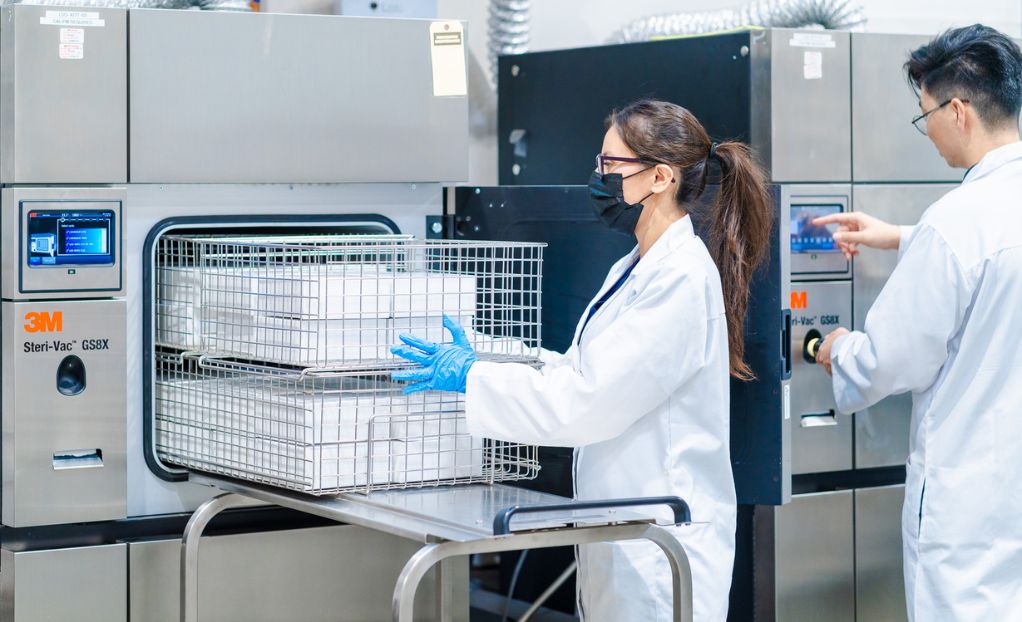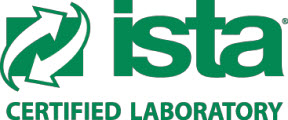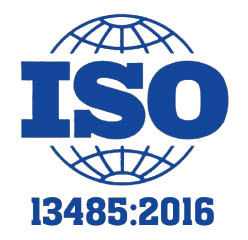Ethylene oxide (EtO) sterilization methods have been under high scrutiny in recent years. Aside from concerns around emissions, environmental impacts and potential health issues among technicians, there have been looming questions about how to make it safer overall. It is, after all, the primary medical device sterilization method for over half the devices in the market. This is due primarily to its effectiveness and ability to sterilize many different materials, including heat- or moisture-sensitive medical equipment and because it is non-corrosive.
Many contract sterilization service providers have made effective changes to streamline ethylene oxide sterilization, meet new safety regulations and still achieve the needs of the medical device companies/manufacturers who require it. Yet these three questions often go unasked when medical device companies consider working with a contract sterilization partner:
1. Do they provide small batch and large batch ethylene oxide sterilization?
While large batch ethylene oxide sterilization may be necessary for large volumes, small batch can be very nimble, flexible and – you guessed it – limit impact to the environment and the technicians. Small batch EtO sterilization is especially useful to clinical trials and requires only a small number of samples. Small batch does not require a full validation and makes the process much faster, while companies that specialize in large batch require more time and higher volume of ethylene oxide to achieve ideal sterilization outcomes.
Life Science Outsourcing (LSO) provides both small and large batch EtO sterilization, but specializes in small batch, quick turn, in-house EtO sterilization using 3M Steri-Vac™ sterilizers with 8-cubic-foot validated chambers that combine sterilization and aeration in the same chamber in a continuous process. This chamber setup is especially helpful because it limits EtO exposure by reducing the need to open chamber doors to move devices to aerators.
2. What makes their ethylene oxide process safe?
Medical device companies will want to ensure that any sterilization partner they use adheres to strict ethylene oxide regulations and standards. Some of these include ANSI, AAMI and ISO standards such as:
- ISO 11135 related to batch release
- ISO 10993-7:2008 for biological evaluation of medical devices regarding ethylene oxide sterilization residuals
- EPA Clean Air Act regulations
These are necessary to protect end users and staff members as well as the environment and surrounding areas. A contract sterilization partner should have validated sterilization processes that can meet FDA-recognized standards. The FDA routinely inspects industrial facilities that manufacture or sterilize medical devices. You can inquire with the new sterilization partner about their last inspection outcomes.
3. How do they handle adverse ethylene oxide events?
Ethylene oxide leaks can and do happen. The big question is how the facility is prepared to handle them.
- Do they have a process in place to limit ethylene oxide exposure?
- How long will it sideline their sterilization services?
- When can sterilization of your product resume?
LSO has safeguards in place and a process plan ready for any issues, including something as rare as an ethylene oxide leak. Existing protocols limit any emissions that may take place, while the small amounts of gas they use can easily be cleared within one business day – meaning sterilization cycles do not experience any significant delay. Medical device companies can be confident that such an uncommon event will be swiftly dealt with for the benefit of the environment, staff and the products.
Completing your due diligence to identify the right contract sterilization partner for your medical devices is critical to ultimately benefit the patients and healthcare professionals your devices are meant to help. If your devices require ethylene oxide sterilization, it pays to find the right partner you can count on: a company dedicated to best practices, standards and protocols, one that is committed to serving you and your devices, will help you get to market quickly, and can help you achieve ideal healthcare outcomes.
Looking for more information on ethylene oxide sterilization? Read Which Materials and Medical Devices Are Best for Ethylene Oxide (EtO) Sterilization?
Start up. Speed up. Scale up. Founded in 1997, Life Sciences Outsourcing is an FDA-registered and ISO 13485-certified organization with services and capabilities spanning the entire medical device product life-cycle – from turnkey manufacturing, testing, validation, and sterilization to precision packaging, fulfillment, and distribution. Email us at info@lso-inc.com or call (714) 672-1090 today to get started.







